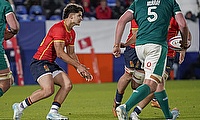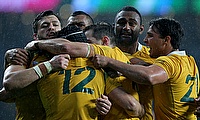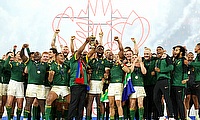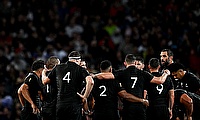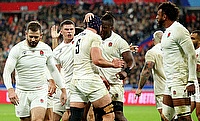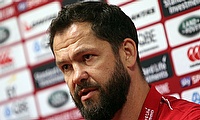How Fiji can upset Pool A
Fiji are one of the most polarising sides in the upcoming 2015 Rugby World Cup.
To some they are the ambassadors for the way in which rugby should be played and have a very real chance of upsetting the odds and emerging from a horrendously difficult pool, whilst to others they are simply a potential banana skin that the likes of England, Australia and Wales cannot avoid to take lightly.
The truth is, they’re probably somewhere in between those two descriptions. This side has been compared to some of the better Fijian sides of recent years, including the side which made it to the quarter-finals of the 2007 RWC in France. With stars such as Nemani Nadolo and Nikola Matawalu in the back line, the enthusiasm around the side is understandable, but there are certain key elements missing that the side of 2007 had.
First and foremost, Fiji have no Nicky Little this time round. Little stills holds records for most caps and most points ever accrued by a Fijian international and was a controlling influence at fly-half that neither Josh Matavesi nor Ben Volavola can currently match.
If you go further back to the quarter-final-reaching teams of 1991 or 1999, the Fijian set-piece was arguably a more formidable unit, boasting the likes of Simon Raiwalui and Greg Smith, than the 2015 tight five. The immensely impressive Leone Nakarawa leads the Fijian tight five, but as impressive as he is, he is not a one-man scrum or lineout.
There’s no denying the ability and danger of the current side however, so here’s a look at how the Flying Fijians can hurt, and potentially turn the tables on, England, Australia and Wales over the next few weeks.
Offloads, offloads and more offloads
First up for Fiji are England at Twickenham in the tournament opener on Friday night. Playing the tournament hosts at their home ground is an unenviable way to start the competition, but Fiji will be hoping that expectation weighs heavily on English shoulders and the hosts make a slow start.
One way in which Fiji should look to exploit this is simply by playing their natural, offloading game. In England’s last five games (excluding games against Ireland who specifically play without offloading), they have allowed 75 offloads, meaning that teams are averaging 15 offloads per game against the English defence. To compare, Australia, against Tier 1 opposition, have conceded 51 offloads (10.2 per game) in the same span of games, whilst Wales, once again removing Ireland from the calculations, have allowed just 40 (8 per game).
Certain extraneous variables, such as quality of opposition faced, play into those totals, but it’s the mark of England’s tendency to blitz defensively which allows for high offload totals and that is something you cannot afford to let Fiji do.
With Brad Barritt leading the line, England’s blitz defence strategy has been very successful, as it attempts to stop teams on or behind the gain line. It’s a tactic which was prevalent in England’s win over New Zealand in 2012 and looks to force the opposition to run back towards the waiting England pack.
Fiji, however, like to spread the field and attack in pods of three runners. As you can see below, this creates a lot of open space between the pods and puts pressure on defences to spread themselves wide and create holes which can be later be exploited if the Fijians decide to reverse direction.
These tight, congested pods of players are only effective because of the fantastic ball-handling skills of the Fijian forwards and backs.
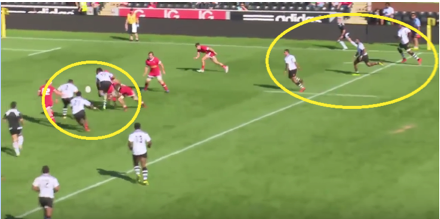
Once the ball is with one of these pods, they like to central player to carry into contact, allowing for offloads on either the outside or inside, as you can see below. In this scenario, Matawalu has number eight Masi Matadigo on his inside if he wants him or, as he did in this game, finds Waisea Nayacalevu with an offload out of the back of the hand and seconds later Fiji are over the try line.
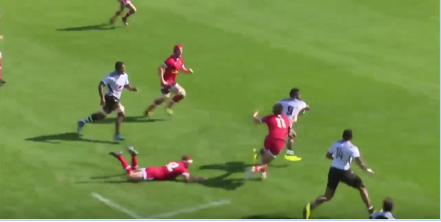
Whilst blitzing defences can limit forward momentum and force teams into making dangerous, interceptable passes, against a team with as quick and skilled hands as Fiji, it could be a dangerous tactic to employ heavily.
A heavy dose of Nikola Matawalu
The electric scrum-half can be as dangerous to his own team as he is to the opposition, but when Fiji take on Australia in the second pool match, they will need him to be on song. The former Glasgow Warrior is an exceptionally-gifted attacking player, capable of beating opposition defenders with his running, kicking or passing.
Anyone who has seen him in the white of Fiji or in the Guinness Pro 12 for Glasgow knows that if you give him an inch of space around the fringes, he’ll make you pay, and it’s in this area where he can hurt Australia.
Below you can see New Zealand’s Aaron Smith exploiting the same weakness in the retreating and unorganised Australian defence. He throws a dummy to Conrad Smith, drawing Adam Ashley-Cooper out of the defensive line and creating a large space for tight five forwards James Horwill and Sekope Kepu to fill. With Horwill rushing to fill the space vacated by Ashley-Cooper, Kepu cannot keep pace and Smith ghosts between the two.
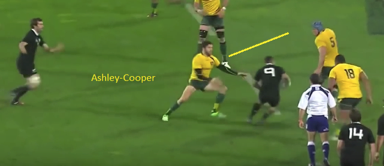
Luckily for Australia, Smith proceeds to turn back into the crowd of Australian jerseys after making his break, but if they give Matawalu this kind of fresh air, it could be Goodnight Vienna for the Wallabies.
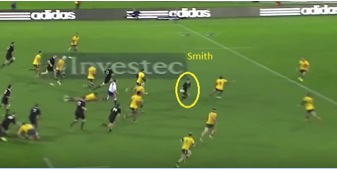
Matawalu may not be the balanced scrum-half that Smith is, but with open spaces in front of him, there may be no more dangerous runner in world rugby than the Fijian.
Test the Halfpenny-less Welsh back three
After Australia comes the equally challenging prospect of a fired-up Welsh side at the Millennium Stadium in Cardiff. It’s not particularly fair that Australia get to avoid playing Wales in Cardiff whilst Fiji have to make the trip to what will certainly be a cauldron on October 1st, but unfortunately they were the cards the Fijians were dealt.
Once again, Matawalu should be pivotal, especially with Rhys Webb missing the tournament through injury, but it’s another hole in the Wales squad which Fiji should really look to test.
Leigh Halfpenny is one of the finest full-backs in world rugby and much of that is due to his considerable ability under the high ball. The injury which ended Halfpenny’s RWC should see the explosive Liam Williams assume full-back responsibilities, but if Williams suffers any setbacks in his recovery from foot surgery, Wales could go to either the diminutive Matthew Morgan or the prodigiously talented Hallam Amos.
Regardless of who does eventually line up at full-back for Wales on the day, Fiji would be well-advised to test them early. Williams, despite being an exciting counter-attacking threat, is prone to making the odd howler, whilst Morgan and Amos will both be relatively untested at the highest level.
With both Nadolo and Nayacalevu standing 6” 5’ and the former weighing in at just shy of 20 stone, they cut two very formidable figures who the Welsh back three will not want to see charging at them with the ball hanging up in the air.
Below we see Dan Carter ignore his back line, with pressure in his face, to unleash a pinpoint kick and give Nadolo an opportunity to go one-on-one with Ben Lam and try to create a try from nothing.
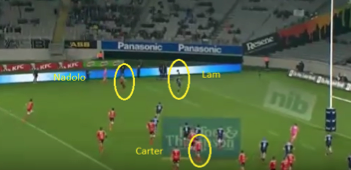
As you can see, there was only ever going to be one winner in this contest, as Nadolo uses his bulk to muscle Lam out of the way and then his height to go up and take the ball as high as possible, giving him the maximum amount of time to secure it before Lam, or the ground, has a chance to dislodge it. Unsurprisingly, this ended in a try for Nadolo.
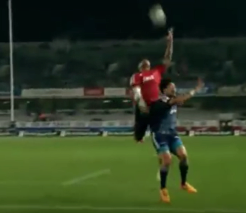
Admittedly, neither Matavesi nor Volavola have the pinpoint kicking accuracy of Carter, but the truth is they don’t need it. All they need to do is put the ball in roughly the right areas and both Nadolo and Nayacalevu can do the rest. With Williams only just coming back from injury and Alex Cuthbert struggling for form, this should be a prevalent tactic for Fiji in Cardiff.
It is certainly easy to get excited about the potential of this Fijian side, but the truth is that they are playing three very good, very well-drilled sides in England, Australia and Wales, and if they are to spring an upset, they will need all three of these tactics to be working effectively and in conjunction with one another.
There will certainly be opportunities for the Islanders to take a scalp or two this autumn, but there is a big difference between scaring teams and beating them, and Pool A feels like it may be a bridge too far for the Islanders.
If they had been in any pool but Pool A, chances are we would be lauding them as one of the favourites to make the quarter-finals.








